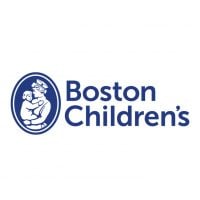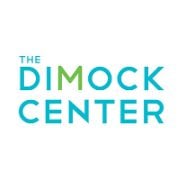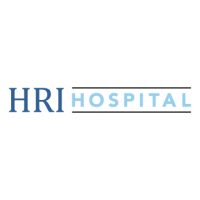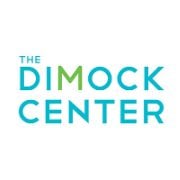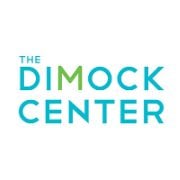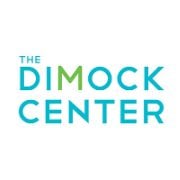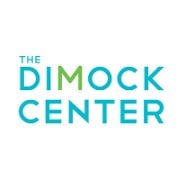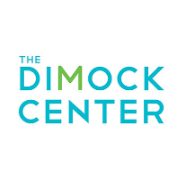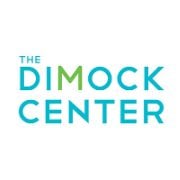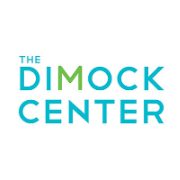Boston Children's Hospital
Drug Rehab Center in Boston, Massachusetts
Boston Children's Hospital is a world-renowned institution providing comprehensive treatments and therapies for mental health and addiction since 1869, offering multiple levels of care, including aftercare support, detox, drug rehab, dual-diagnosis, inpatient, and outpatient services, supported by Joint Commission accreditation and private health insurance.
About This Massachusetts Facility
Boston Children's Hospital is a world-renowned institution that has been providing care for children and young adults with a variety of medical and mental health concerns since 1869. Located in Boston, MA, the hospital specializes in the treatment of mental health issues such as addiction, substance abuse, and eating disorders, as well as dual diagnosis.
Boston Children's Hospital offers a variety of evidence-based treatments and therapies to help patients struggling with addiction and mental health disorders. Patients have access to care through multiple levels of treatment, including aftercare support, detox, drug rehab, dual-diagnosis, inpatient, and outpatient services. Treatment options include individual, family, and group therapy, intervention, substance use counseling, trauma therapy, anger management, recreational therapy, and nutrition therapy. In addition, the hospital is accredited by the Joint Commission on Accreditation of Healthcare Organizations and accepts private health insurance. All services are tailored to the individual patient, helping them to reach their recovery goals.
Genders
Ages
Modality
Additional
Accreditations

JCAHO
Conditions and Issues Treated
The inappropriate use of any drug in Boston, MA is substance abuse. This involves alcohol, medications, and illicit drugs. With a combination of physical and psychiatric therapies, drug addiction is successfully treated at Boston Children's Hospital. After Detox is complete, individuals follow-up with treatments treating the root cause of the addiction.
Opioid Addiction Treatment supports people recovering from addiction to prescription drugs as well as illegal opioids. This is a hospital-based or residential treatment. Depending upon one’s age, detox without the appropriate medication may be unpleasant or even dangerous–some get body aches, fever, chills, while others may even have seizures.
Opioid treatment involves medically assisted detox, physical and mental support. Most rehabilitations use an array of treatments to ensure overall wellbeing, such as Medication-assisted therapy (MAT) in which one gets behavioral therapy, medicines, and counseling. A client-centered approach can reduce one’s chances of relapse. Therapists at work with the client to figure out environmental and behavioral triggers, giving them the power to change the patterns.
Levels of Care Offered at Boston Children's Hospital
This center offers a variety of custom treatment tailored to individual recovery. Currently available are Aftercare Support, Detox, Drug Rehab, Dual-Diagnosis, Inpatient, Outpatient, with additional therapies available as listed below.
Detoxification is a reduction in the effects of drugs and alcohol. It can be beneficial for people who have a history of withdrawal, who are at risk for dangerous health concerns, or who are unable to function well in their day-to-day lives due to addiction.
Detoxification is beneficial for:
- People who are unable to overcome addiction without the help of professional care.
- People who are at risk for dangerous health conditions due to withdrawal.
- People who are at risk for overdose or serious health concerns after a relapse.
If you believe that addiction treatment is right for you or a loved one, you can contact your primary care physician, or search for addiction treatment centers in your area. Treatment is beneficial to people who are motivated towards recovery, and who understand the benefits of professional care.
An inpatient is a person who stays in a hospital or rehab center during treatment. For alcohol- and drug-dependent individuals, inpatient rehabs provide individualized around-the-clock services. Inpatient treatment programs address a person’s unique physical, medical, and psychological needs. A team of experts assess the severity of the addiction and design a highly tailored program. typically, the length of stay in an inpatient facility in Boston, MA is 30 days. Those with severe addiction may need to stay at the facility for 60 to 90 days.
Outpatient rehabilitation is a treatment that exists if a patient is not checking into Boston Children's Hospital long term. In addition to helping them recover, the patient attends regular therapy sessions and detox and participates in other therapies. However, this is all primarily done from home. As a follow-up to inpatient treatment, outpatient treatment is usually recommended.
After rehabilitation, it helps people return to their everyday lives. It may also be an alternative to inpatient care in some situations. If they cannot leave their jobs, children, or don’t have the money for inpatient care, people can choose this method. Inpatient therapy, however, is the best method and most suggested level of treatment offered by Boston Children's Hospital in recovering from addiction.
Treatment for substance abuse does not cease after an individual successfully completes a detox or rehabilitation program. A vital follow-up treatment service is aftercare support provided to individuals at Boston Children's Hospital in Massachusetts after they attain initial sobriety.
Aftercare support often takes the following forms: 12-Step Programs, Outpatient Treatment Programs, and Support Groups. The most effective aftercare programs are tailored to meet an individual’s specific needs and circumstances.
Therapies & Programs
Individual therapy involves one on one sessions between the patient and the therapist at Boston Children's Hospital. Individual therapy provides patients with a safe environment where they can openly discuss their problems with the therapist. The patients find the therapist as a person who they can trust. It helps them to open up and discuss personal and sensitive issues, which they may not be comfortable discussing in a group setting.
Individual therapy aims to identify the core issues that would have led the patient to substance abuse and address the root cause effectively. The therapist can develop patient-specific customized solutions through individual therapy, which aids speedier recovery.
Recovery can be more effective if the entire family’s involved. Family therapy hosted by Boston Children's Hospital brings in the addict’s family to explore genetic factors. It gives loved ones the tools for dealing with addiction and its underlying mental issues. It is a recommended step in helping addicts adapt to sober living.
Trauma is one of the most common causes of psychological disorders. It’s often found in people with addiction diagnoses. Trauma therapy addresses this by examining the emotions and thoughts people have formed due to past traumas. Traumas are complex but trauma therapy can reduce their ability to contribute to addictive behaviors.
The right diet can improve a person’s general outlook, sleep habits and thought processing skills. MNT also lowers the occurrence of chronic diseases such as adult-onset diabetes. Dieticians like those at Boston Children's Hospital in Boston, MA believe that nutrition therapy is the key to making significant lifestyle changes.
Nicotine Replacement Therapy (NRT) uses low dose nicotine products to ween smokers away from cigarettes. The products get nicotine into the bloodstream without smoking reducing addiction to the physical habit. It also allows addicts to adjust to lower doses to reduce withdrawal symptoms.
Contingency Management (CM), also known as motivational incentives or prize method, is a behavioral therapy type. It is based on the principle that their consequences influence the behaviors of an individual. So, it promotes the desired behavior by giving rewards while discouraging the unwanted behaviors by withholding the rewards or even by giving punishments. One of the expected desired behavior is the absence of drug in a toxicology screen, and the rewards vary from prize or vouchers, to experiences. CM is used for individuals who need therapy for more than 3 months, and it has the advantage of being implemented by family members.
Payment Options Accepted
For specific insurance or payment methods please contact us.
Is your insurance accepted?
Ask an expert, call (888) 674-0062
Additional Details
Specifics, location, and helpful extra information.
Boston, Massachusetts 02115 Phone Number(617) 355-2727 Meta DetailsUpdated November 25, 2023
Staff Verified
Patient Reviews
There are no reviews yet. Be the first one to write one.
Boston, Massachusetts Addiction Information
Massachusetts has one of the highest rates of drug abuse in the country. More than half a million Massachusetts residents abuse alcohol while more than 1.5 million use illegal drugs each year. This drug and alcohol usage is the cause of over 8% of all deaths in the state. In 2017, Massachusetts ranked in the top 10 of the states with the highest opioid overdose rates.
Boston has one of the highest rates of opioid abuse in the country. 1 in 10 residents struggles with substance abuse. Between 2013 and 2017, the number of opioid-related deaths in the area increased by 64%. There were over 1,100 overdose deaths in 2016. Detox is the first step in most treatment programs in Boston. This is where the person stops using drugs and allows their body to cleanse itself of toxins.
Treatment in Nearby Cities
- Beverly, MA (19.1 mi.)
- Dedham, MA (7.2 mi.)
- Wareham, MA (44.5 mi.)
- South Dennis, MA (65.8 mi.)
- Billerica, MA (17.4 mi.)
Centers near Boston Children's Hospital
The facility name, logo and brand are the property and registered trademarks of Boston Children's Hospital, and are being used for identification and informational purposes only. Use of these names, logos and brands shall not imply endorsement. RehabNow.org is not affiliated with or sponsored by Boston Children's Hospital.
